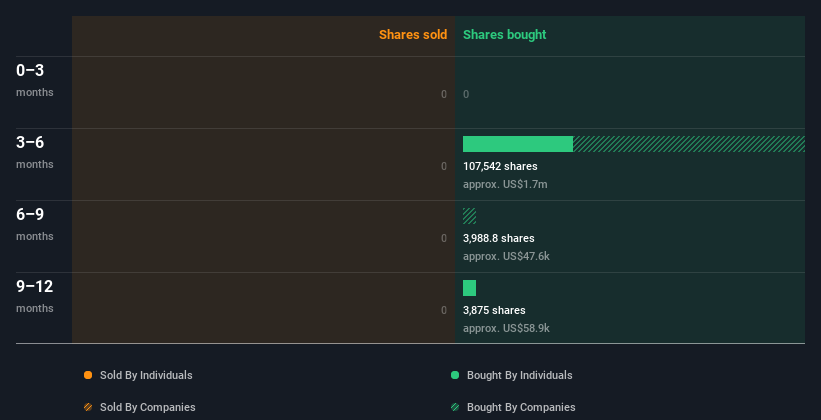
Insiders who acquired US$589.0k worth of comScore, Inc.'s (NASDAQ:SCOR) stock at an average price of US$16.17 in the past 12 months may be dismayed by the recent 14% price decline. Insiders purchase with the hope of seeing their investments increase in value over time. However, due to recent losses, their initial investment is now only worth US$437.0k, which is not great.
Although we don't think shareholders should simply follow insider transactions, logic dictates you should pay some attention to whether insiders are buying or selling shares.
View our latest analysis for comScore
comScore Insider Transactions Over The Last Year
The Independent Director Matthew McLaughlin made the biggest insider purchase in the last 12 months. That single transaction was for US$406k worth of shares at a price of US$16.23 each. So it's clear an insider wanted to buy, even at a higher price than the current share price (being US$12.00). It's very possible they regret the purchase, but it's more likely they are bullish about the company. To us, it's very important to consider the price insiders pay for shares. Generally speaking, it catches our eye when insiders have purchased shares at above current prices, as it suggests they believed the shares were worth buying, even at a higher price.
In the last twelve months comScore insiders were buying shares, but not selling. You can see the insider transactions (by companies and individuals) over the last year depicted in the chart below. By clicking on the graph below, you can see the precise details of each insider transaction!

comScore is not the only stock insiders are buying. So take a peek at this free list of under-the-radar companies with insider buying.
Does comScore Boast High Insider Ownership?
Another way to test the alignment between the leaders of a company and other shareholders is to look at how many shares they own. A high insider ownership often makes company leadership more mindful of shareholder interests. Our data indicates that comScore insiders own about US$6.5m worth of shares (which is 11% of the company). However, it's possible that insiders might have an indirect interest through a more complex structure. We do generally prefer see higher levels of insider ownership.
So What Does This Data Suggest About comScore Insiders?
There haven't been any insider transactions in the last three months -- that doesn't mean much. However, our analysis of transactions over the last year is heartening. The transactions are fine but it'd be more encouraging if comScore insiders bought more shares in the company. In addition to knowing about insider transactions going on, it's beneficial to identify the risks facing comScore. For example - comScore has 2 warning signs we think you should be aware of.
But note: comScore may not be the best stock to buy. So take a peek at this free list of interesting companies with high ROE and low debt.
For the purposes of this article, insiders are those individuals who report their transactions to the relevant regulatory body. We currently account for open market transactions and private dispositions of direct interests only, but not derivative transactions or indirect interests.
Valuation is complex, but we're here to simplify it.
Discover if comScore might be undervalued or overvalued with our detailed analysis, featuring fair value estimates, potential risks, dividends, insider trades, and its financial condition.
Access Free AnalysisHave feedback on this article? Concerned about the content? Get in touch with us directly. Alternatively, email editorial-team (at) simplywallst.com.
This article by Simply Wall St is general in nature. We provide commentary based on historical data and analyst forecasts only using an unbiased methodology and our articles are not intended to be financial advice. It does not constitute a recommendation to buy or sell any stock, and does not take account of your objectives, or your financial situation. We aim to bring you long-term focused analysis driven by fundamental data. Note that our analysis may not factor in the latest price-sensitive company announcements or qualitative material. Simply Wall St has no position in any stocks mentioned.
Have feedback on this article? Concerned about the content? Get in touch with us directly. Alternatively, email editorial-team@simplywallst.com
About NasdaqGS:SCOR
comScore
Operates as an information and analytics company that measures audiences, consumer behavior, and advertising across media platforms in the United States, Europe, Latin America, Canada, and internationally.
Excellent balance sheet and fair value.
Similar Companies
Market Insights
Community Narratives





